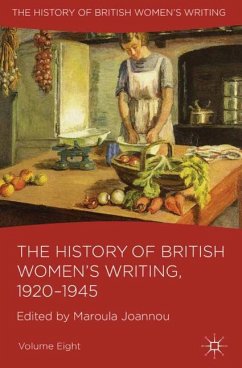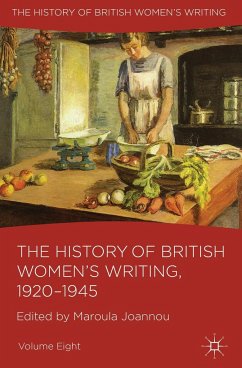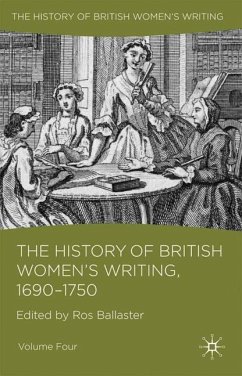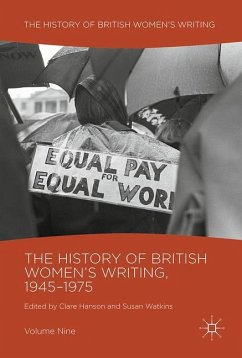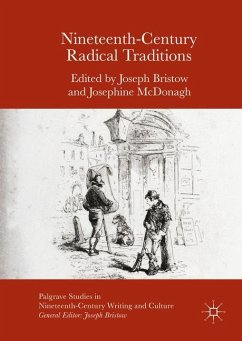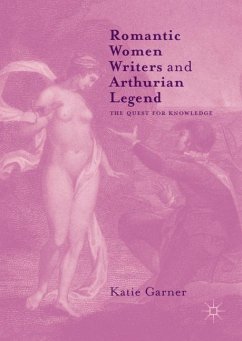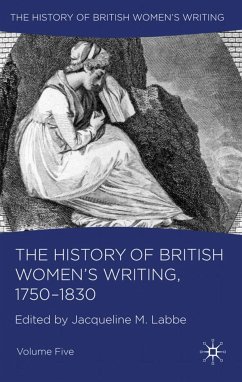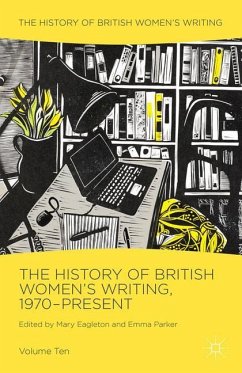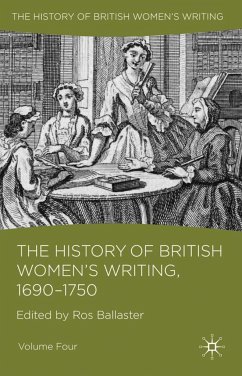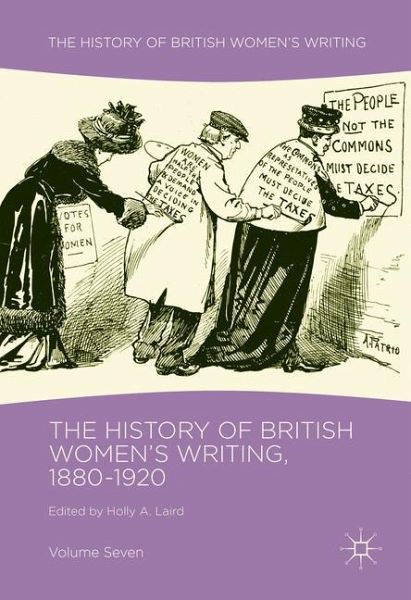
The History of British Women's Writing, 1880-1920
Volume Seven
Herausgegeben: Laird, Holly A.
Versandkostenfrei!
Versandfertig in 6-10 Tagen
69,99 €
inkl. MwSt.

PAYBACK Punkte
35 °P sammeln!
The ranks of English women writers rose steeply in the late 19th and early 20th centuries, contributing to the era's revolutionary social movements as well as to transforming literary genres in prose and poetry. The phenomena of 'the new' - 'New Women', 'New Unionism', 'New Imperialism', 'New Ethics', 'New Critics', 'New Journalism', 'New Man' - are this moment's touchstones. This book tracks the period's new social phenomena and unfolds its distinctively modern modes of writing. It provides expert introductions amid new insights into women's writing throughout the United Kingdom and around th...
The ranks of English women writers rose steeply in the late 19th and early 20th centuries, contributing to the era's revolutionary social movements as well as to transforming literary genres in prose and poetry. The phenomena of 'the new' - 'New Women', 'New Unionism', 'New Imperialism', 'New Ethics', 'New Critics', 'New Journalism', 'New Man' - are this moment's touchstones. This book tracks the period's new social phenomena and unfolds its distinctively modern modes of writing. It provides expert introductions amid new insights into women's writing throughout the United Kingdom and around the globe.





